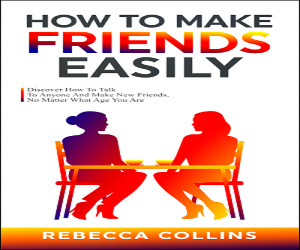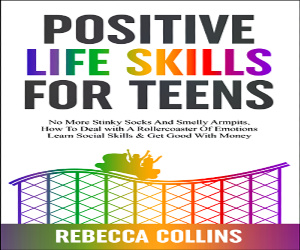The human brain is a remarkable organ, capable of processing vast amounts of information and shaping our perception of the world. However, it is not immune to trickery. Our brains can sometimes play tricks on us, leading us to believe things that may not be entirely accurate.

Often or not, especially when we are distracted or tired, we can be conned into believing things that we wouldn’t necessarily believe if we were paying attention. Our minds tend to drift off at times and this distraction can open the gates for outside forces to influence us.
In this blog post, we will explore seven intriguing ways in which our brain and memory can deceive us. Let’s dive into the fascinating world of cognitive illusions and explore the depths of our own perceptions.
False Memories
Our memories are the foundation of our personal narratives, but they are not infallible. False memories can be implanted or inadvertently created through suggestion, leading us to firmly believe in events that never actually occurred. These false memories can be incredibly vivid and emotionally charged, challenging our sense of reality and highlighting the fallibility of our recollections.
Fun Fact 1
Sixty percent of the human brain is made of fat. Not only does that make it the fattiest organ in the human body, but these fatty acids are crucial for your brain’s performance.
Confirmation Bias
Confirmation bias is a cognitive bias that influences our interpretation of information, leading us to selectively perceive and remember evidence that confirms our pre-existing beliefs or opinions. Our brain can trick us into dismissing contradictory information and reinforcing our existing worldview, making it difficult to objectively evaluate new information and ideas.
Fun Fact 2
Your brain isn’t fully formed until age 25. Brain development begins from the back of the brain and works its way to the front. Therefore, your frontal lobes, which control planning and reasoning, are the last to strengthen and structure connections.
Placebo Effect
The placebo effect demonstrates the powerful influence of our beliefs and expectations on our perception of outcomes. Our brain can trick us into believing that a treatment or intervention is effectively working, when in effect, we are curing ourself with our thoughts, this leads to real physiological and psychological changes, even when the treatment itself is inert. This phenomenon highlights the complex interaction between our thoughts, emotions, and physical well-being.
Fun Fact 3
Your brain’s storage capacity is considered virtually unlimited. Research suggests the human brain consists of about 86 billion neurons. Each neuron forms connections to other neurons, which could add up to 1 quadrillion (1,000 trillion) connections.
Illusory Correlation
Our brain seeks patterns and connections in the world around us, sometimes leading us to perceive correlations that do not actually exist. Illusory correlation occurs when we mistakenly believe that there is a relationship between two unrelated events or variables. This cognitive bias can perpetuate stereotypes and reinforce unfounded beliefs, showcasing the limitations of our cognitive processes.
Fun Fact 4
Brain information travels up to an impressive 268 miles per hour. When a neuron is stimulated, it generates an electrical impulse that travels from cell to cell
Anchoring Bias
Anchoring bias is the tendency to rely heavily on the first piece of information encountered when making decisions or judgments. Our brain can trick us into giving disproportionate weight to initial information, even when it may not be relevant or accurate. This bias can impact our perception of value, pricing, and negotiations, potentially leading to suboptimal choices.
Fun Fact 5
On average, your spinal cord stops growing at 4 years old. Your spinal cord, which consists of a bundle of nervous tissue and support cells, is responsible for sending messages from your brain throughout your body.
Misinformation Effect
The misinformation effect occurs when our memory of an event is distorted or altered by exposure to misleading information. Our brain can trick us into incorporating false details into our recollections, especially when we are exposed to misinformation after the event has taken place.
This phenomenon has implications for eyewitness testimony and the reliability of long-term memories. This is especially true when trying to recollect a situation where someone may have said the wrong thing or behaved badly toward us, often or not the recollections of those events may not be 100% accurate.
Fun Fact 6
The human brain can generate about 23 watts of power (enough to power a lightbulb). All that power calls for some much-needed rest. Adequate sleep helps maintain the pathways in your brain. Additionally, sleep deprivation can increase the build-up of a protein in your brain that is linked to Alzheimer’s disease.
Inattentional Blindness
Our brain has limited attentional capacity, and this can lead to inattentional blindness, where we fail to notice significant objects or events in our visual field because our attention is focused elsewhere. Our brain can trick us into missing obvious stimuli, highlighting the selective nature of our attention and the limitations of our conscious awareness.
Fun Fact 7
The human brain weighs 3 pounds. (That’s about as much as a half-gallon of milk.) However, size does not always imply intelligence. Men tend to have larger brains than women.
Conclusion:
Our brain and memory, while remarkable, are not immune to deception. Understanding the ways in which our brain can trick us into believing certain things can help us to become more aware of our cognitive biases and the limitations of our perception.
By acknowledging these cognitive illusions, we can strive for a more objective and accurate understanding of ourselves and the world around us. Our brain is the driving force behind everything we do, however, just like every muscle in the body, the brain does need constant maintenance.
Here are 7 ways to keep your brain healthy...
I hope you go value from this post, if you did, don’t forget to leave a comment below and share the post on social Media. Thank you
Keith































































Add comment